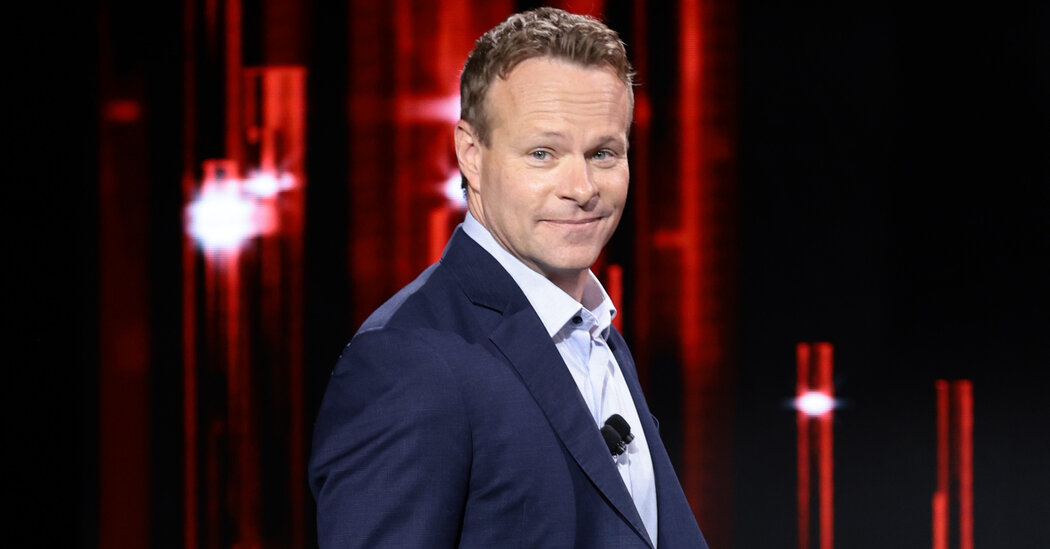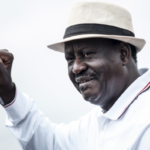
CNN’s ubiquitous “Breaking News” banner is gone, now reserved for instances of truly urgent events. Snarky on-screen captions — “Angry Trump Turns Briefing Into Propaganda Session,” for instance — are discouraged. Political shows are trying to book more conservative voices, and producers have been urged to ignore Twitter backlash from the far right and the far left.
A month into his tenure as the new leader of CNN, Chris Licht is starting to leave his mark on the 24-hour news network he inherited in May from its prominent former president, Jeff Zucker. So far, the Licht Doctrine is a change from the Zucker days: less hype, more nuance and a redoubled effort to reach viewers of all stripes.
Running a network is a new challenge for Mr. Licht, a 50-year-old lifelong producer who has never led an organization as big as CNN. (His last employer, “The Late Show with Stephen Colbert,” had a staff of about 200 people; CNN has roughly 4,000.) Some CNN journalists say they wonder if he can navigate a sprawling, unwieldy global news network past what has been a no good, very bad year.
In December, the anchor Chris Cuomo was fired for ethical lapses, prompting an investigation that ultimately led to Mr. Zucker’s ouster in February over an undisclosed relationship with a co-worker. Then, in April, the network’s new owners, Warner Bros. Discovery, shut down the streaming platform CNN+ weeks after its $300 million debut. On the same day, Mr. Licht announced the prospect of hundreds of layoffs in his first formal address to staff.
Under Mr. Zucker, a micromanager who dictated headlines and whispered in anchors’ ears during interviews, the network developed an “Audience of One” culture. “What Jeff Wants” was the mantra, and that often meant spectacle and drama. Mr. Licht is now tearing up that playbook with a management style notably different from his predecessor.
“I’m not here to get into the weeds of day-to-day editorial decision making,” Mr. Licht told employees on his first day. His more hands-off approach to coverage, and his sweeping pronouncements that CNN will “challenge the traditional philosophy of cable news,” have left his skeptics wishing for more specific direction from the top, not less.
Mr. Licht’s early moves, and the mood inside the network, were described by several people with knowledge of the internal dynamics at CNN who would speak only on the condition on anonymity.
An Inside Look at CNN
The 24-hour news network with a worldwide footprint is in a time of turmoil.
Mr. Licht is aware of the criticism. “I am going to make decisions slower than some would like,” he wrote in a newsroom-wide memo on Thursday. “I know this organization has been through tremendous change over the last four months, which is why I am approaching this process slowly and thoughtfully as we look at all parts of the operation.” (CNN declined to comment.)
One early focus has been morning programming, an arena that Mr. Licht knows well from overseeing “Morning Joe” and his successful retooling of “CBS This Morning.”
Mr. Licht told advertisers that he wanted to “disrupt” morning TV. Internally, he has said he wants a more inviting, conversational approach, and he believes CNN’s main offering, “New Day” — which Mr. Zucker created — lacks a clear identity, three people said.
In coming weeks, he wants to create a roster of “friends of the show” who would make regular appearances on the program, the people said. Among those being considered is Audie Cornish, the former NPR host who had been slated to host a program on CNN+.
Mr. Licht also wants to revamp the Sunday night lineup, introducing a new talk show from the former Fox News anchor Chris Wallace, as well as a new long-form newsmagazine program.
Mr. Licht is intent on dialing back partisanship on the air, telling advertisers last month, “At a time where extremes are dominating cable news, we will seek to go a different way.” At a recent meeting in Washington with producers and journalists, Mr. Licht said he wanted to book more Republicans and conservatives on political shows to offer a wider range of viewpoints. Internally, he praised Dana Bash’s recent interview about gun control with Representative Dan Crenshaw, a Texas Republican.
In some ways, Mr. Licht is working to undo the showman-like tendencies that Mr. Zucker, a former “Today” show producer, embedded in CNN’s DNA over his nine-year tenure.
Mr. Zucker placed sportscaster-style microphones on pundits and encouraged political anchors like Jim Acosta to embrace adversarial reporting about Donald J. Trump, leading to coverage that could seem like advocacy. Oversized groups of partisan guests dialed up the moral dudgeon nightly.
“It was so loud,” said Peter Hamby, a former CNN correspondent and a columnist at Puck who writes about changes in cable news. “They found a new outrage every single day. It made it difficult for audiences to separate what was really an emergency and what was a ratings ploy.”
The Zucker approach did have benefits. CNN enjoyed its most profitable and highest-rated years under his tenure, though viewership fell sharply after Mr. Trump left office. Many anchors felt deeply loyal to Mr. Zucker, who championed his team amid attacks from Mr. Trump, death threats and even pipe bombs mailed to CNN’s offices. After Mr. Zucker’s exit, the anchor Don Lemon delivered a tearful on-air farewell, saying, “We lost a man who was the backbone, the glue and the spirit of this company.”
Some CNN producers and journalists became accustomed to awaiting Mr. Zucker’s specific instructions. Mr. Licht is less inclined to micromanage, an approach that is consistent with his producing philosophy in past jobs. Mr. Licht has told associates that he prefers empowering deputies to make decisions for themselves, even if mistakes can sometimes occur.
On-air journalism is just one aspect of Mr. Licht’s new role; he also has to make sure the network makes money. With ratings down across cable, Mr. Licht has told colleagues that strengthening CNN’s reputation as a fair-minded news outfit will help attract blue chip advertisers.
With little experience on the corporate side of running a network, Mr. Licht brought in outside help: Chris Marlin, a friend for decades and a business executive who most recently worked at Lennar, the giant Florida-based home constructor. Mr. Licht met Mr. Marlin, who grew up in a trailer park in Arkansas, when he was 17 at a Washington conference for high school students.
Mr. Marlin, who is combing the network for new sources of revenue, has proved an object of curiosity and unease at CNN. Some employees have taken to calling him “Fish Man,” a takeoff on his maritime surname. So far, his ideas include expanding CNN Underscored, a consumer-focused shopping guide, and extending the CNN brand into foreign markets like China.
For everyday viewers of CNN, the clearest sign that the network is under new leadership may be what’s no longer a fixture on their television screens.
According to a new entry in the CNN standards guide, obtained by The New York Times, a story must qualify as “‘stop what you are doing and watch’ news” to secure the “Breaking News” label. Even then, the guide says, the label should only appear onscreen for one hour, unless there is an unfolding live story like a school shooting, major hurricane or death of a world leader.
“Its impact has become lost on the audience,” Mr. Licht wrote in his memo, adding that CNN should be “focused on informing, not alarming our viewers.”
Benjamin Mullin contributed reporting.




